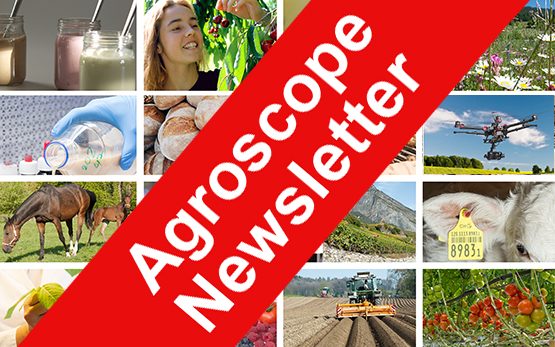No Difference for Beneficials between GM Plants with One or More Bt-Toxins
Zurich-Reckenholz, 16.01.2020 - The Biosafety Research Group at Agroscope has conducted a review of the literature on genetically modified plants that produce several insect-active Bacillus thuringiensis (Bt) toxins simultaneously. The experts were able to show that the toxins did not pose an increased risk for non-target organisms such as beneficials.
Bt-plants are genetically modified to produce proteins that are toxic for certain insect pests. Increasingly, Bt-crop varieties are engineered to produce several Bt-toxins simultaneously, in order to control target pests more efficiently, expand the range of target pests, and slow down the development of resistance.
The concern has repeatedly been expressed that genetically engineered plants producing several Bt-toxins could pose an increased risk for non-target organisms in the ecosystem, since the individual proteins produced might interact with one another. This could damage species that are not sensitive to the individual toxins.
For this reason, Agroscope researchers Jörg Romeis and Michael Meissle have conducted a systematic literature search of all major databases in order to spot evidence of interactions between Bt-toxins that might cause unexpected damage to non-target organisms. The results of the study have just been published in the journal Trends in Biotechnology.
No evidence was found in the literature that Bt-toxins in combination have a different action spectrum than the individual proteins. According to our current state of knowledge, genetically engineered plants containing combined Bt-toxins can thus be regarded as just as safe for non-target organisms as plants with a single Bt-toxin.
Background to the Study
The Biosafety Research Group at Agroscope has been studying the effects of insect-resistant genetically modified plants on biodiversity and its ecosystem services for twenty years now.
For the current study, experts performed a systematic analysis of the literature, checking approximately 2300 literature references for relevant results. Altogether, 58 scientific publications with results from laboratory or field trials were identified. The laboratory studies were conducted with a total of 35 insect species from 24 families and 11 orders. Field trials recording the frequencies of insects chiefly in Bt-maize and Bt-cotton were carried out in 5 and 7 countries, respectively.
Moratorium on Genetic Engineering in Switzerland
In force since 2005, the moratorium on the commercial cultivation of genetically engineered plants has been extended three times by the Swiss Parliament, and expires at the end of 2021. Research, including field trials, is explicitly excluded from this moratorium.
Address for enquiries
Jörg Romeis
Agroscope
Reckenholzstrasse 191
8046 Zürich
Media service Agroscope
media@agroscope.admin.ch
+41 58 466 88 62
Documents
Links
Publisher
AGROSCOPE
http://www.agroscope.admin.ch






